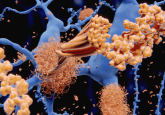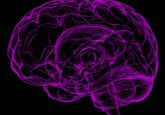The five diseases behind language impairment

An extensive autopsy study identifies diseases that cause progressive impairments of language, such as difficulty with grammar or word comprehension.
A new study from Northwestern University (IL, USA) reports that progressive language impairment – a form of dementia known as primary progressive aphasia (PPA) – is caused by five different diseases. Each of the diseases attacks a different area of the brain’s language center in the left hemisphere of the brain, thus each causing a different type of language impairment.
The longitudinal study followed 118 cases of PPA for a period of over 25 years. The participants underwent language testing and imaging of their brain structure and brain function was performed. In addition, they consented to donate their brains upon death.
A group of diseases, termed frontotemporal lobar degeneration, caused 60% of the PPA cases. Although less well known, these conditions are responsible for around 50% of dementia cases in those under 65.
The other culprit of PPA – accounting for 40% of cases – is a rare form of Alzheimer’s disease that affects individuals at a younger age, and only impairs language, instead of memory.
 A drink a day takes the brain away?
A drink a day takes the brain away?
A new study draws together the largest collection of MRI brain scans, alcohol-related behavioral phenotypes, and socioeconomic environmental measurements to look at how moderate drinking affects brain volume.
The initial symptoms of PPA can be hard to spot and may be mistaken as anxiety or throat problems. Notably, the authors of the study point out that each disease has different rates of progression and different implications for intervention, stressing the importance of an accurate and early diagnosis.
Once a clear diagnosis is reached, the diseases can be treated both on a symptomatic level and on a disease level via medication. Individuals with Alzheimer’s can be given medication and take part in clinical trials. Whilst those with difficulty with their grammar can undergo targeted speech therapy, and those struggling with word comprehension can also receive speech therapy or transcranial magnetic stimulation.
Next, the team hopes to improve diagnostic accuracy by pinpointing biomarkers that can be used to link each case to either Alzheimer’s disease or frontotemporal lobar degeneration. Other goals include finding pharmacologic treatments that can be utilized to tackle the underlying disease, and designing non-pharmacologic symptom-based interventions for each type of language impairment.





